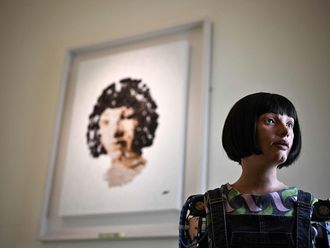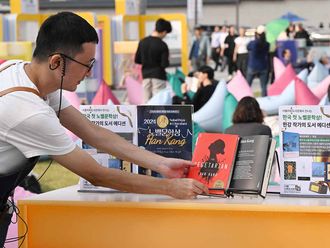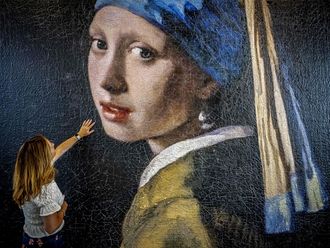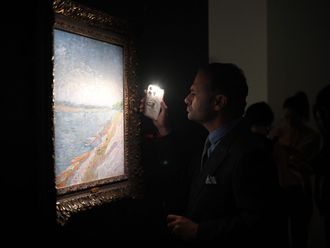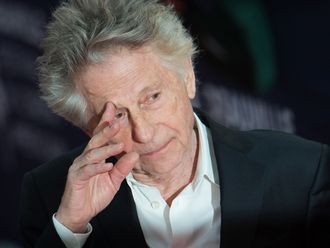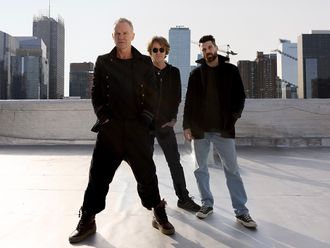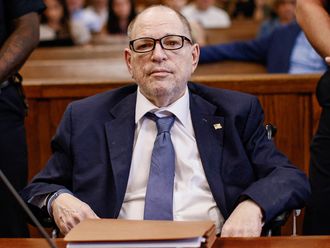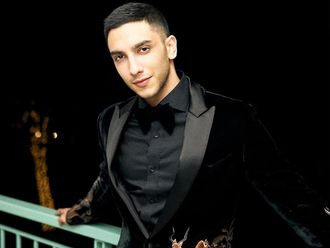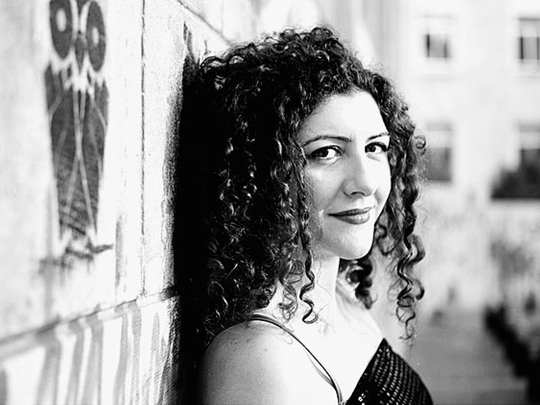
Dubai: A group of 13 people sat in Hind Shoufani's Beirut living room reading poetry: and this is how Poeticians was born.
Shoufani had been studying and living in New York, bemoaning the fact that there weren't any slam poetry or spoken word events. So, when she returned to her native Beirut, she simply set up her own.
"We went from slight ridicule to amazing success. No one believed we could pull off poetry in Dubai. People scoffed at me and some supported and others were guarded and cautious. The first few events reached 100 audience attendees and anyone's cynicism dissipated," the published poet told Gulf News in an exclusive interview.
The most recent event was held at arts venue The Shelter, Al Quoz. The intimate evening saw a number of poets read their own work of varying styles, talents and tempos.
"It's been very, very heartwarming to see reactions from people... the audience loves it, but more importantly for me, it has generated in poets the desire to write again," she said.
Poeticians is held in Beirut, Jordan and Dubai by Shoufani, and the Dubai event has between eight to 12 regular readers, although "we discover new people all the time" she said.
Inspired
Nigel Holt, 46, British, is a media officer for an Islamic investment bank in DIFC by day and a poetician by night. "I write poetry because I have to — a bit like the itch you scratch and the more you scratch the more it itches. I've always had form and rhyme in my head," he said. What happens in the world, he continued, is what inspires him to write: "I'm only personal in that poems are my reactions to actions".
Holt said he writes as his position as a "stranger in a strange land (to quote Heinlein) is a duty I have to follow through", and writes on political topics in the region.
Shoufani continued that Arabs and expats have read their poems in English and Arabic together; long poems and short haikus; free verse and controlled, metered poetry; angry poetry and love poetry. "We had a night dedicated to human rights and anti-war poetry. We had a night for love and lust poetry. We have amateur poets and others who have published several books. Anyone and everyone is welcome to the Poeticians, provided we feel that the poetry itself has some merit," she said.
Poeticians has been running for three years and has stayed an underground movement, which is how Shoufani prefers it to stay. There is no sponsorship, media, money exchanged or fees associated with the name.
Camilla Nicholson, also British, 33, is a copywriter by day and performs as a poetician by night. "It's [poetry is] an interesting way to express ideas and I find that being constrained by some kind of form leads to interesting, creative and sometimes crazy ideas," she said.
Taste
Nicholson won a poetry competition at age five, and got a taste for the genre. "I'm inspired by people, or bits of people, by memories, memories of things I've read, things I am reading, songs, dreams, a beautiful view, a train ride, a run," she said.
Poetry has long been a part of Arab culture throughout the region, and Dubai now has its own dedicated poetry festival. Emirati poets are also becoming increasingly recognised.
However, Poeticians is a contemporary spoken word event, taking the classical form to new modern levels. "We have found a little niche in the region catering to Arabic-English speaking multi-cultural crowds that are looking for more modern spoken word.
"It's been a huge part of Gulf culture, Arabic history in general has always revered poetry. I know that many local poets are doing very well here and abroad and there are whole communities of writers in classical Arabic. The Poeticians is a different format, it's a patchwork quilt of various influences and languages," Shoufani said.
"House Call", by Nigel Holt
Another round of triage, another night;
three sisters and a cousin playing games.
"Tell me you think it's going to be all right",
Aya says out loud to mask her fright.
Mayar can feel the fear that no-one names:
another round of triage, another night.
Bisan instructs the girls, ‘Shush! Sit tight!', the nearby houses shrouds of dust and flames.
"Tell me you think it's going to be all right"
- the last words Aya utters. The Israelite who put the shell straight through the bedroom blames another. Rounds of triage, another night,
"even kids…", he sighs, "…join in to fight."
But doctor Izzat stumbling in, exclaims
"Tell me You think it's going to be all right!
Can you, my God, build heaven on our spite?"
His tears anoint the memory of their names.
Another round of triage; another night;
tell me you think it's going to be all right.
— Written by Nigel Holt for Dr Ezz Al Deen Abu Elaish
The next Poeticians event will be held in September. For more information, log on to: www.poeticians.com
Do you like to write or read poems? Who is your favourite poet? Would you like to join such a forum?


